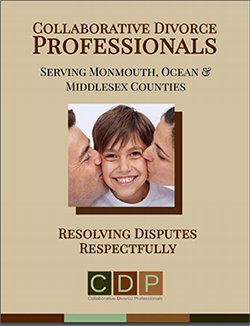Collaborative Practice…Catch The Wave!
by Marshall A. Morris, CPA/ABV/CFF
Collaborative Practice is the nouveau alternative dispute resolution [“ADR”] process to resolving marital disputes before they morph into litigation. The practice of collaborative law began in the 1980s as an interdisciplinary collaborative divorce process enabling such disputes to be concluded in a respectful manner without the feuding parties slugging it out in a courtroom. Stu Webb, a Minnesota attorney, is the acknowledged creative force, whose mind and heart convinced him that there had to be a better way for a married couple to divorce without the usual acrimonious trial. The collaborative process is used to assist married couples to divorce in a manner that separates, but does not destroy, the family unit. This article is devoted to the collaborative process as a viable ADR divorce method.
The collaborative process is not mediation, although mediation can be used as a tool in the collaborative process. Mediation is a facilitative method of advancing give-and-take between disputing parties where litigation has often already been initiated. Collaborative practice is an interest-based process where the parties promise not to litigate, but instead to participate together, with counsel, in non-adversarial, non-confrontational meetings to mutually resolve issues. Arbitration is also an ADR process in which a decision is imposed upon the disputing parties by a third party. The end game in the collaborative process is not third party imposition, as this is much the same as having a judge decide the final outcome, the antithesis of the collaborative process. The end game of the collaborative process is to reach a settlement that is neither advanced nor decided by a mediator or an arbitrator, but reached by deliberative design of the parties.
The parties in the collaborative process promise that they will resolve issues mutually [the deliberative design aspect], and do so privately. Privacy is important for preserving the dignity of the family in their social and business communities. For these reasons, the parties mutually promise to each other that they will work towards conflict resolution without going to court.
When working properly, the process reduces the financial costs associated with traditional legal remedies and the emotional stress. The collaborative process fosters a team approach to problem resolution whereby the parties and their respective counsel often jointly engage financial and/or other professionals to assist with settlement design that preserves the interests, and addresses the concerns, of all parties, including the children. The team approach means that the parties, counsel and other team members meet as often as necessary to mutually design a settlement that is acceptable to all parties. By meeting as often as necessary, lines of communication are opened, while lines in the sand begin to fade.
The collaborative process is voluntary, and it is not always successful. If the collaborative process breaks down and the parties proceed to litigation, the collaborative team agrees to no longer be involved in resolving the dispute. If engaged in properly however, with mutual respect, not mutual animus, the collaborative process lends itself to resolution of divorce disputes with the dignity of the parties intact. The divorce collaborative process allows the marriage to end, but the family unit to remain. With litigation exacting an expensive toll on participants, and mediation and arbitration often the same, the collaborative process is a viable alternative to dispute resolution.
Publication Biography
Marshall A. Morris, CPA/ABV/CFF is an experienced forensic accountant providing business valuation and investigative accounting services for collaborative practice, mediation, arbitration and litigation. Marshall has lectured at Rutgers University, The New Jersey Society of Certified Public Accountants, and Bar Associations, and has authored numerous topical articles. Marshall is a New Jersey R.1:40 qualified mediator, and a qualified member of the Collaborative Divorce Professionals in Monmouth County and the Mid-Jersey Collaborative Law Alliance. Marshall’s offices are located in Old Bridge New Jersey. He can be reached at 732.588.5559, or by email at [email protected]. Marshall invites you to visit his website www.marshallmorriscpa.com.





